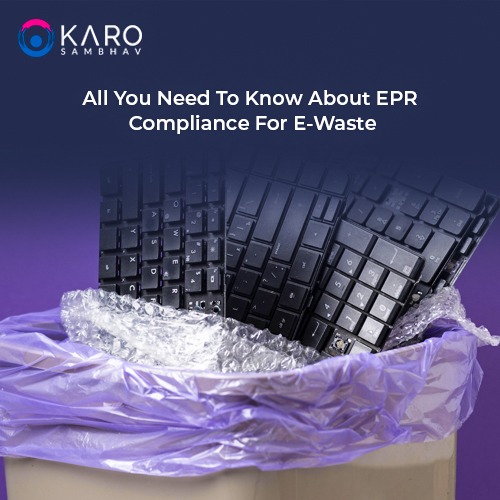What is Extended Producer Responsibility (EPR)?
So, what does extended producer
responsibility in India imply? It is a strategic policy approach that
bestows producers with the responsibility of treating and disposing of
post-consumer products. Besides, the policy encourages users to figure out ways
to extend the span of end-of-life products. For example, businesses associated
with the manufacturing of electronic gadgets must be EPR compliant and keep
tabs on ways to refurbish and reuse the spent gadgets.
Have you ever wondered if extended producer responsibility is important or
not?
EPR is an environmental protection strategy that envisions reducing the environmental
impact of products, right from their packaging to their end-of-life. The
concept strays away from the linear model of take-make-waste. Instead, extended
producer responsibility EPR shuts the loop on materials management, maximising
the recovery of waste when consumers discard and toss out products post-use. It
truly signifies that EPR is crucial in the present times.
In addition to reducing the aggravating impacts of waste, EPR aims to conserve
the depleting ratio of natural resources. If you are not already aware, mass
production of products demands a greater extraction of raw materials. This
naturally decreases the ratio of natural resources. Little do you realise that
these resources are finite in nature. EPR authorisation ensures that companies
are obligated and proactively working on ways to prolong the use of resources
in a cycle. It is a strategic step that nips in the bud of waste generation and
conserves raw materials.
What are the challenges of EPR authorisation?
As prospective as it sounds, the challenges in implementing extended producer
responsibility in India cannot be underrated. Do you know why?
1. A serious lack of awareness about proper e-waste management
2. Poor infrastructure to support adequate collection, treatment, and recycling
of waste
3. There are significant gaps between recyclers, aggregators, and waste
generators to channel waste properly.



Comments
Post a Comment